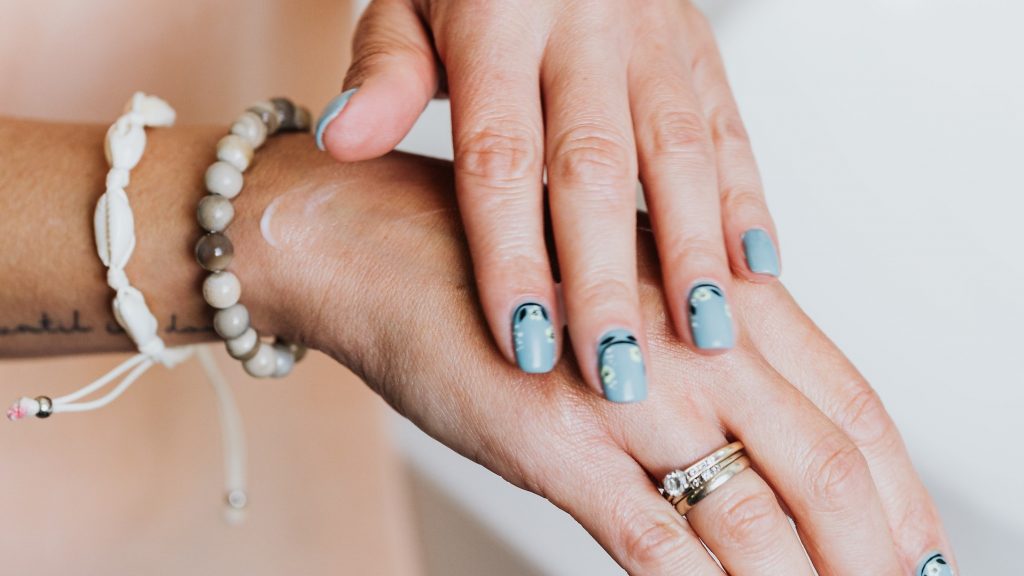FREE Shipping on Orders over $89 with Account – Create One Today!
- (844)-859-9400
- Get Help

What is psoriasis? Simply put, it’s a type of skin disease that produces scaly, reddish, and itchy patches commonly found on the elbows, knees, trunk, and scalp. It’s a long-term chronic disease that doesn’t have a cure and runs in families. So if your parents or siblings have it, the higher the chance of you developing symptoms. Though, thankfully, it isn’t directly contagious.
Having this skin condition can be painful. It can affect your concentration and interfere with your sleep. Knowing what causes psoriasis can help you make informed decisions as you find medications or moisturizers that can help you manage symptoms.
Psoriasis is a disorder that causes skin cells to multiply ten times faster than usual. Therefore, causing red and bumpy patches with white scales that are very itchy. They commonly appear in early adulthood and affect a few areas for most people. These patches can heal, but they appear throughout a person’s life. Here are some signs and symptoms to watch out for:
If you have psoriasis, see your dermatologist to determine the best course of action. They know how to diagnose and help you manage this skin disorder.
There are two main psoriasis causes that you should know about, especially if you think you might have this skin disease. However, even doctors can’t pinpoint the exact cause of psoriasis and believe it may be a combination of certain factors. Recent discoveries point to causes connected to a person’s immune system and genetics:
Everybody has T-cells, which defend the body against diseases by fighting off infection. If you have psoriasis, the T-cells will also attack your body’s skin cells by mistake. Therefore, forcing the body to create more new cells isn’t needed. The extra cells then accumulate on the skin, which causes psoriasis.
The cause of the problem with the immune system is unknown, but scientists believe it may be due to specific environmental triggers or certain genes.
Some genes are prone to psoriasis. So if a close relative has psoriasis, there’s a higher chance you will too. .However, scientists have discovered that those with psoriasis don’t always have genes known to increase the risk.
At the same time, it’s possible to have genes that increase the risk of psoriasis yet never develop it. So they believe a person must be exposed to a trigger before it can appear.
A specific triggering event can cause a person’s psoriasis to show. Exposing yourself to this trigger can also cause flare-ups if you already have it. Known triggers include:
Some of these triggers can cause your psoriasis to show, while others may not. What triggers your psoriasis will depend on your particular body chemistry.
A dermatologist will have to thoroughly check for any symptoms before they can give a complete diagnosis. They will want to know if you have blood relatives with psoriasis, what kind of symptoms you have, any joint problems, and if you have had significant life changes recently, such as increased stress.
After that, they will let you know what type of psoriasis you have. It may be one of the following:
Once the dermatologist knows what type of psoriasis you have, they will create a treatment plan carefully curated to meet your needs. You may also use moisturizers, lotions, and corticosteroids to help treat and manage the itchy patches that show during your flare-ups.
These can help calm and protect the skin during flare-ups and promote healing at the same time. Calmoseptine, a topical barrier ointment trusted by medical professionals for decades, is particularly good in this department.
Understanding psoriasis can help you grow to accept it. It’s a life-long skin disorder that can affect different aspects of your life. But that doesn’t mean you won’t be able to live normally.
If you have psoriasis, the best thing to do is to manage it. You can use moisturizers and lotions from Medical Monks. Finding the best product to soothe your itchy skin is highly recommended.
